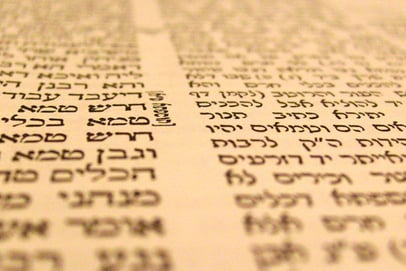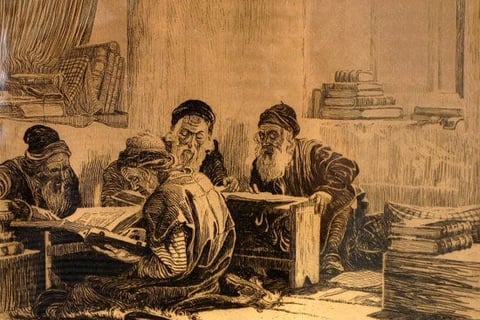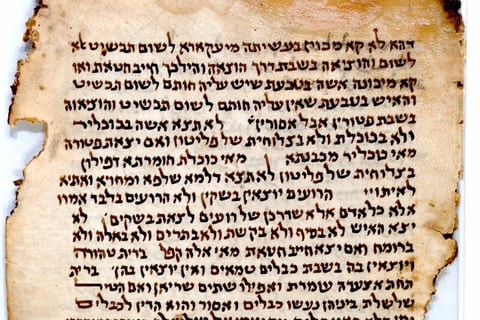The Talmud
The Talmud is a central text in Judaism, serving as a comprehensive compendium of Jewish law, ethics, customs, legends, and teachings. It consists of two main components: the Mishnah and the Gemara.
The Mishnah is the foundational text of the Talmud, compiled in the 2nd and 3rd centuries CE primarily by Rabbi Judah Ha-Nasi. It systematically consists of interpretations, explanations, and expansions of the laws and commandments found in the written Torah (the first five books of the Tanakh). The Mishnah is divided into six orders (sedarim), each containing tractates (masekhtot) that address specific areas of Jewish law and practice, such as agriculture, festivals, civil law, and ritual purity.
The Gemara is a commentary and analysis of the Mishnah, comprising discussions, debates, and interpretations of the text by generations of rabbis in the academies of ancient Israel and Babylonia. There are two versions of the Gemara: the Jerusalem Talmud (Talmud Yerushalmi) and the Babylonian Talmud (Talmud Bavli). The Babylonian Talmud, completed around the 5th century CE, is the most commonly used text, and is the one used in the Theos collection. The Gemara delves deep into legal, ethical, and theological issues, often employing methods of interpretation, argumentation, and storytelling to expand upon the teachings of the Mishnah.
The Talmud addresses a wide range of topics, including religious law (halakha), ethics, theology, philosophy, history, and folklore. It reflects the collective wisdom, scholarship, and spiritual insights of the Jewish people throughout the centuries and continues to serve as a primary source of guidance, inspiration, and intellectual inquiry for Jewish religious communities.




20th century depiction of students of the Talmud studying.


Fragment of a 12th century Talmud on parchment, apart of the Cairo Geniza collection of religious texts.
Theos 2024
Translations are not the property of Theos. Individual translations are the property of their respective translators. Theos does not own the rights to any translation of any religious texts.
